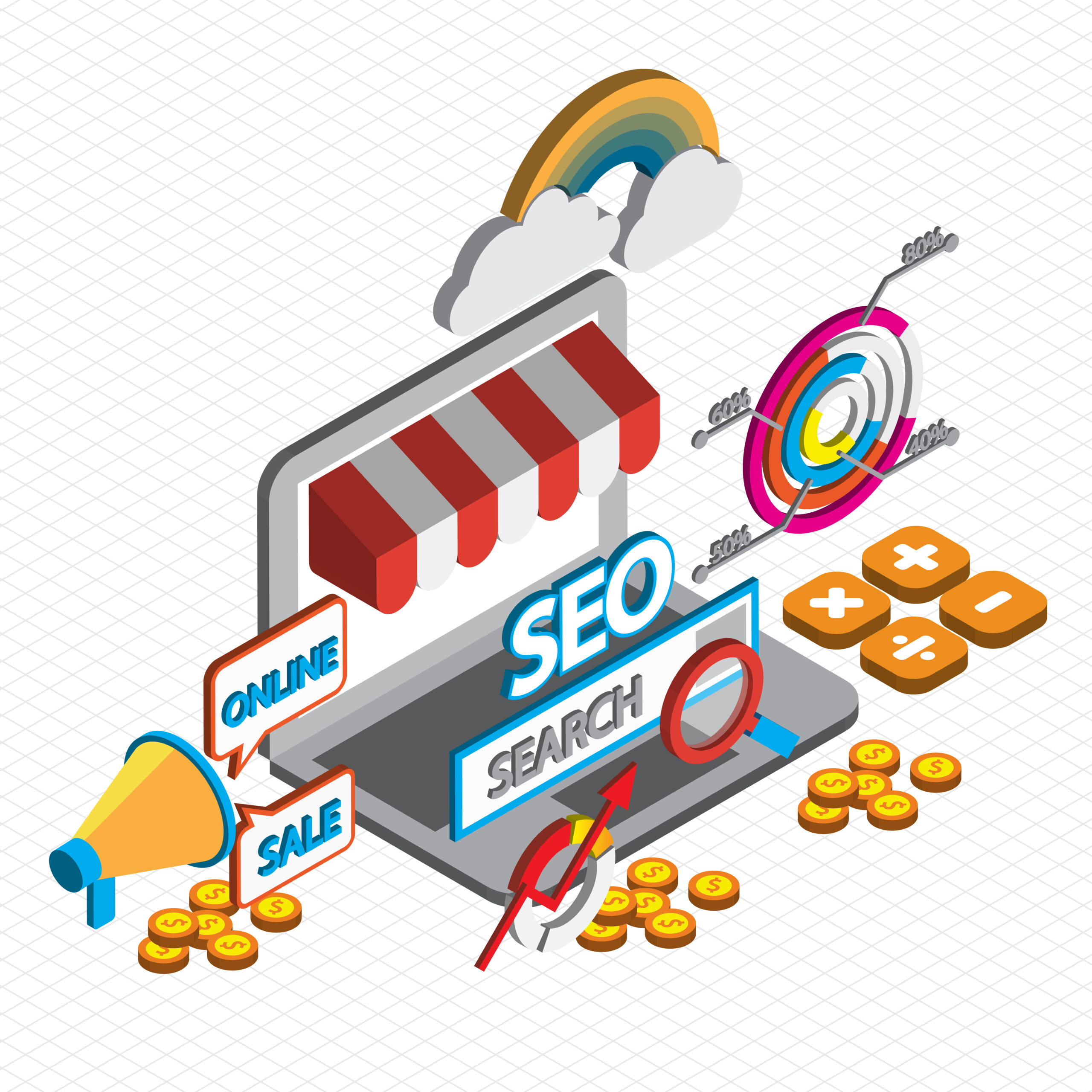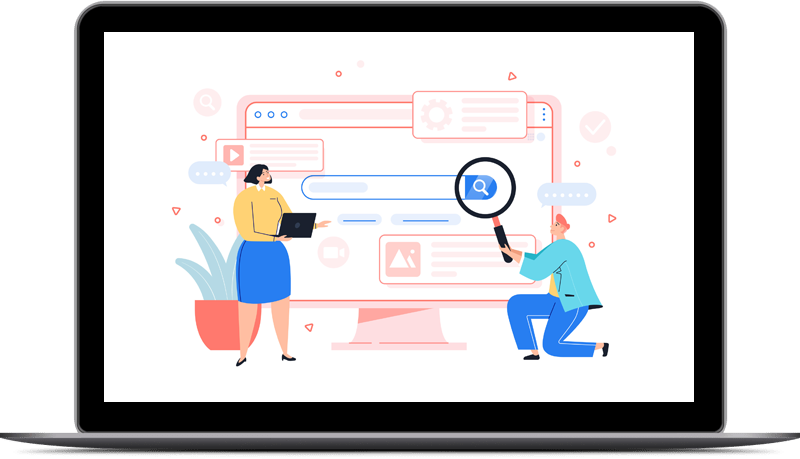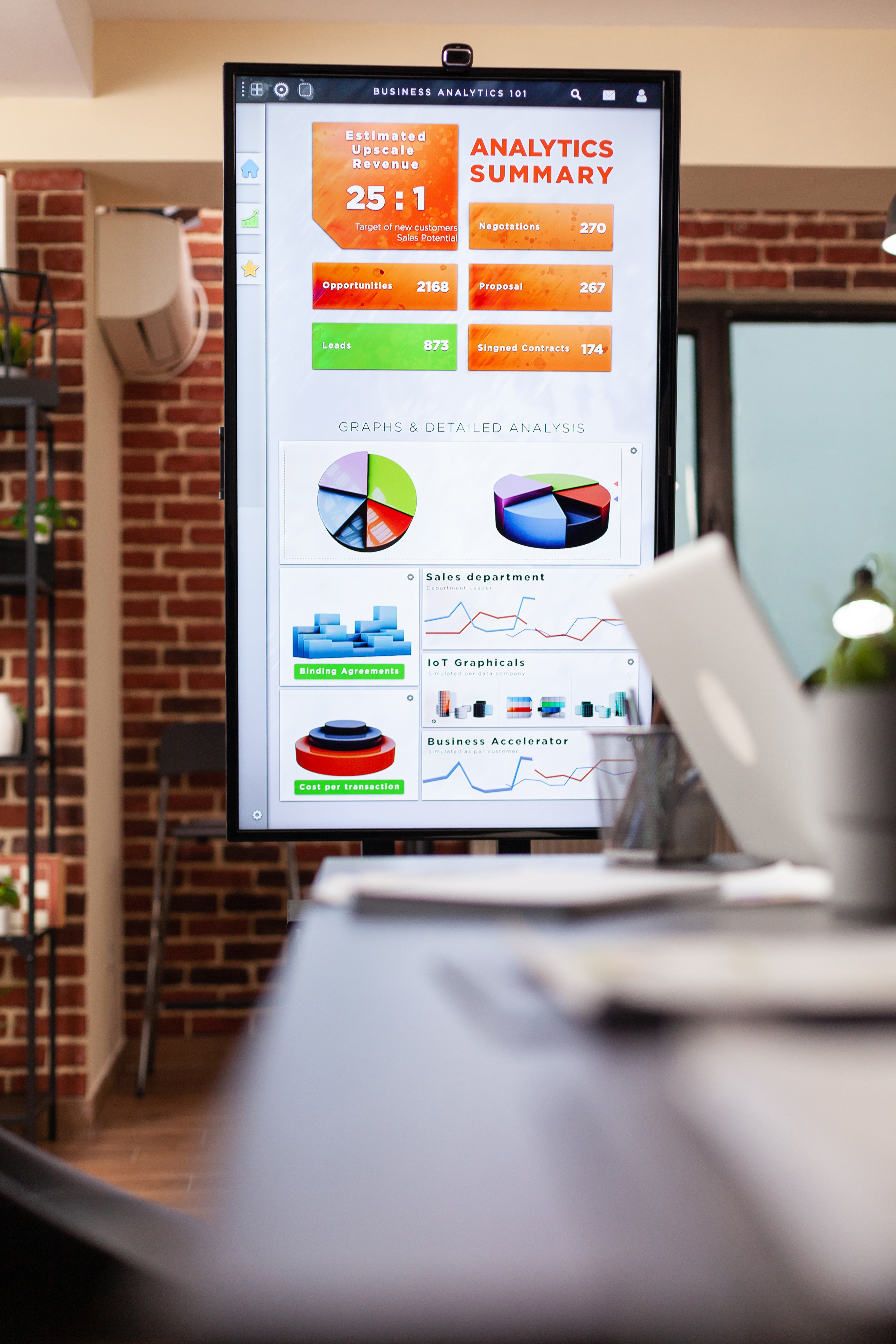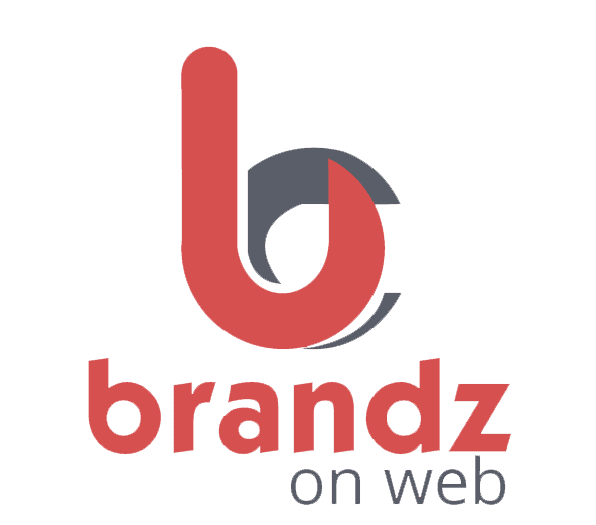On Page Optimisation
Welcome to the world of on-page optimization, where every element of your website is perfectly tuned for search engine success. At Brandz on web, we’re all about delivering exceptional on-page optimization services that will take your website to the next level. Let’s optimize like never before and achieve your business goals together!

What is On Page SEO?
Think of it like a house – on-page SEO is like the foundation and the structure of the house. It’s the things you can see and touch, like the walls, the roof, and the doors. But it’s also the things you can’t see, like the plumbing and the electrical wiring.
At Brandz on web, we’re all about optimizing your website’s structure and content to make it more user-friendly and search engine-friendly. We’ll help you create a website that not only looks great, but also performs great in search engines.
On Site Optimisation Checklist
Conduct a site audit
Before you begin any optimization efforts, it’s important to conduct a site audit to identify any technical issues that may be affecting your website’s performance.
Title tags and meta descriptions
Optimize your title tags and meta descriptions to accurately describe the content on your website and include your target keywords.
Content optimization
Optimize your website’s content to make it informative, engaging, and relevant to your target audience. Include your target keywords in a natural and organic way.
Internal linking
Use internal linking to help users navigate your website and increase the time they spend on your site.
Schema markup
Use schema markup to help search engines better understand the content on your website and improve your search engine rankings.
Social media integration
Integrate social media into your website to increase engagement and drive more traffic to your site.
Keyword research
Identify relevant keywords for your website and incorporate them into your title tags, meta descriptions, header tags, and content.
Header tags
Use header tags (H1, H2, H3, etc.) to structure your content and make it easier for users to navigate.
Image optimization
Optimize your website’s images by using descriptive file names and alt tags that accurately describe the content of the image.
Page speed
Optimize your website’s page speed by minimizing file sizes, compressing images, and leveraging caching techniques.
Mobile-friendliness
Ensure your website is mobile-friendly and responsive, as more and more users are accessing the web on mobile devices.
SSL certificate
Ensure your website has an SSL certificate to provide a secure browsing experience for your users.
Why Is On-Page SEO Important?
On-page SEO is like the seasoning on your food – without it, your website might as well be a bland piece of toast. You want your website to be as tasty as possible, right? On-page SEO helps make your website more appealing to both search engines and human visitors, so don’t forget to sprinkle it on! And remember, just like you wouldn’t put too much salt on your food, don’t overdo it with on-page SEO either. A little goes a long way.
Ah, the beauty of on-page SEO! Not only does it help your website rank higher on search engine results pages, but it also creates a seamless experience for your users. By optimizing your on-page elements, such as meta tags, headings, and content, you’re essentially rolling out the red carpet for search engine crawlers and visitors alike. And let’s not forget the added bonus of being able to showcase your brand’s personality and unique voice through your optimized content. So not only will your website be more discoverable, but it’ll also leave a lasting impression on anyone who stumbles upon it. Talk about a win-win!
There are various steps to be followed for on page optimisation as follows
Website Audit Report
First up, we conduct a website audit report to deeply evaluate your website and identify any objects lacking in the website with reference to SEO. This report helps us to understand your website’s strengths and weaknesses and make improvements where necessary.
Keyword Research Report
Next, we conduct a keyword research report to identify relevant keywords for your website that will help improve your search engine rankings. This is a crucial course of action that plays an integral role in achieving better results in SEO.
Baseline Report
We also create a baseline report that focuses on specific URLs of your website with reference to keywords needed for SEO. We may also suggest creating new pages to further enhance your website’s optimization.
Initial SEO Content Report
In our initial SEO content report, we cover all meta optimization, content optimization, image optimization, and heading tags optimization. This ensures that your website’s content is fully optimized for search engines and your target audience.
Sitemap Robots.txt Creation
We also create a sitemap and robots.txt file to ensure that search engines can easily crawl and index your website’s content. This report helps to make sure that your website is fully optimized for search engines.
Website Technical Report
Our website technical report is another crucial component of our services. In this report, we identify and fix any technical issues that may be affecting your website’s performance, including 301 and 404 methods, Google Analytics set up, and webmaster set up.
Website Speed Test
We also conduct a website speed test on a monthly basis to analyze your website’s speed and identify ways to improve rankings for specific keywords using onsite SEO. And, we conduct a broken link checker to monitor and fix any broken links on your website that may negatively impact your search engine rankings.
Broken Link Checker
Broken link checking is also a monthly process where we monitor that Broken links cause crawl errors with search engine spiders & can spoil rankings, it’s important to retest this monthly to ensure that all links on the site work and are valid. Crawl error sources displays the source URL containing the broken link to their site — no matter where it exists on the web.

Where is On Page SEO required?
Ah, the age-old question! On-page SEO is a critical aspect of optimizing your website for search engines, and it’s required in all areas of your website that you want to rank well. From your homepage to your product pages, your blog posts to your landing pages, every piece of content on your website can benefit from on-page SEO. It’s like giving your website a nice, warm hug and telling it, “I love you and I want you to be found by people searching for you.” So, don’t skimp on the on-page SEO, my friend! Give it the attention it deserves and watch your website soar to new heights.
How to start on page SEO?
Well, well, well, so you’re finally ready to dive into the exciting world of on-page SEO, huh? Great choice! Let’s get started then.
First things first, you need to conduct thorough research on the keywords you want to target. This will help you understand what your target audience is searching for and how you can optimize your content to rank higher in search engine results pages (SERPs).
Once you have your keywords, it’s time to optimize your content. This includes creating high-quality, relevant, and engaging content that is optimized with your target keywords. Make sure your title tags, meta descriptions, and header tags are all optimized for your target keywords.
Next, you need to ensure your website’s structure is optimized for search engines. This includes optimizing your URL structure, internal linking, and ensuring your website is mobile-friendly and easy to navigate.
Don’t forget about the technical aspects of on-page SEO, such as optimizing your images with alt tags, optimizing your page speed, and ensuring your website is secure with HTTPS.
Last but not least, don’t forget to regularly monitor and analyze your on-page SEO efforts to track your progress and make necessary adjustments.
Remember, on-page SEO is an ongoing process, so keep up the good work and always be willing to adapt and evolve your strategy as needed. Good luck!

How to improve on-page SEO?
First of all, you should make sure that your website’s content is relevant and informative. Don’t be afraid to add a little personality to your writing – nobody wants to read something that’s as dry as a saltine cracker!
Next, pay attention to your website’s title tags and meta descriptions. Think of them as your website’s pick-up lines – they should be catchy, attention-grabbing, and give people a reason to stick around.
Another important aspect of on-page SEO is optimizing your images. Just like you wouldn’t show up to a job interview in your pajamas, you don’t want your website’s images to look sloppy and unprofessional. Make sure they’re high-quality, compressed, and have descriptive file names.
And don’t forget about internal linking! Think of it as a game of connect the dots – the more you can connect different pages on your website, the better chance you have of keeping visitors engaged and on your site for longer.
Last but not least, don’t be afraid to get a little meta with it. Make sure your website’s HTML is squeaky clean, and that you’re using header tags (H1, H2, etc.) to organize your content in a way that’s easy for both humans and search engines to understand.
So there you have it – some tips on how to improve your on-page SEO, served up with a side of humor. Now go forth and optimize like a boss!
Our On Page Services
Keyword Research
The first step in on-page SEO is conducting keyword research to determine the most relevant and effective keywords for the website. This includes researching the keywords that the target audience is searching for, as well as analyzing competitors’ keywords.
Internal linking
Internal linking helps search engines and users navigate the website more easily. By linking relevant pages together, website owners can create a logical structure that makes it easier for both search engines and users to find the information they need.
User Experience Optimization
User experience is crucial for both users and search engines. On-page SEO services can help optimize the user experience by improving navigation, reducing clutter, and ensuring that the website is easy to use and understand.
Content Optimization
Once the relevant keywords are identified, the website’s content is optimized to ensure that it is structured and written in a way that is optimized for those keywords. This includes optimizing headings, meta descriptions, and image alt tags.
Site Speed Optimization
Website speed is a critical factor in on-page SEO. Slow-loading pages can negatively impact user experience and search engine rankings. On-page SEO services can help optimize images, remove unnecessary plugins, and use caching to improve site speed.
Analytics and Tracking
On-page SEO services can help website owners track and analyze user behavior on their website. This includes monitoring website traffic, bounce rates, and user engagement to help identify areas for improvement.
URL Optimization
URLs play an important role in on-page SEO. They should be clear, concise, and descriptive, making it easier for search engines and users to understand what the page is about.
Mobile optimization
As mobile devices become more prevalent, it is essential to ensure that the website is optimized for mobile users. On-page SEO services can help ensure that the website is mobile-friendly, with responsive design and fast load times.
Things We’ll Do To Optimise Your Pages
Brandz on Web provides comprehensive on-page optimization services to improve the ranking and visibility of your website in search engine results pages. Here are some of the things we’ll do to optimize your pages:
Keyword research
We’ll conduct thorough research to identify the most relevant and profitable keywords for your website.
Meta tags optimization
We’ll optimize the title tags, meta descriptions, and header tags to ensure they are keyword-rich and provide a clear and concise summary of the page content.
Content optimization
We’ll optimize the on-page content of your website, ensuring that it is engaging, informative, and keyword-rich. We’ll also ensure that the content is properly structured, including headings, subheadings, and bullet points.
Internal linking
We’ll optimize your internal linking structure to ensure that your website’s pages are properly linked together, improving the user experience and helping search engines understand the content of your website.
Image optimization
We’ll optimize the images on your website, including file size, alt text, and image titles, to improve load times and ensure they are search engine friendly.
URL optimization
We’ll optimize the URLs of your website’s pages, making them keyword-rich and easy to read and understand for both users and search engines.
Mobile optimization
We’ll optimize your website for mobile devices, ensuring that it is responsive and loads quickly on all devices.
Page speed optimization
We’ll optimize your website’s load times, including file compression, image optimization, and code optimization, to improve user experience and search engine rankings.
Schema markup
We’ll add schema markup to your website to help search engines understand the content and structure of your website, improving your search engine rankings.
On-Page SEO FAQs
How can I optimize my page titles and meta descriptions?
To optimize your page titles and meta descriptions, make sure they include relevant keywords and accurately describe the content on your page. Keep them concise and compelling, and make sure they are unique for each page on your website.
How Should I Use H2 Tags?
Lorem ipsum dolor sit amet, consectetur adipiscing elit, sed do eiusmod tempor incididunt ut labore et dolore magna aliqua. Cursus turpis massa tincidunt dui ut. Purus sit amet volutpat consequat mauris nunc congue nisi vitae. Justo donec enim diam vulputate ut pharetra sit.
What is header tag optimization?
Header tag optimization involves using H1, H2, and H3 tags to structure your content and make it easier for search engines to understand. Use your main keyword in your H1 tag, and use H2 and H3 tags to organize your content into sections and sub-sections.
How can I optimize my content for on-page SEO?
To optimize your content for on-page SEO, make sure it is high-quality, relevant, and engaging. Use your target keywords naturally throughout your content, and make sure it is well-structured with headings, subheadings, and bullet points. Also, include internal links to other relevant pages on your website.
Why is internal linking important for on-page SEO?
Internal linking is important for on-page SEO because it helps search engines understand the structure of your website and which pages are most important. It also helps users navigate your website and find more relevant content.
How can I optimize my images for on-page SEO?
To optimize your images for on-page SEO, make sure they are compressed and optimized for web use. Use descriptive file names and alt text that include your target keywords, and make sure your images are relevant to the content on your page.













